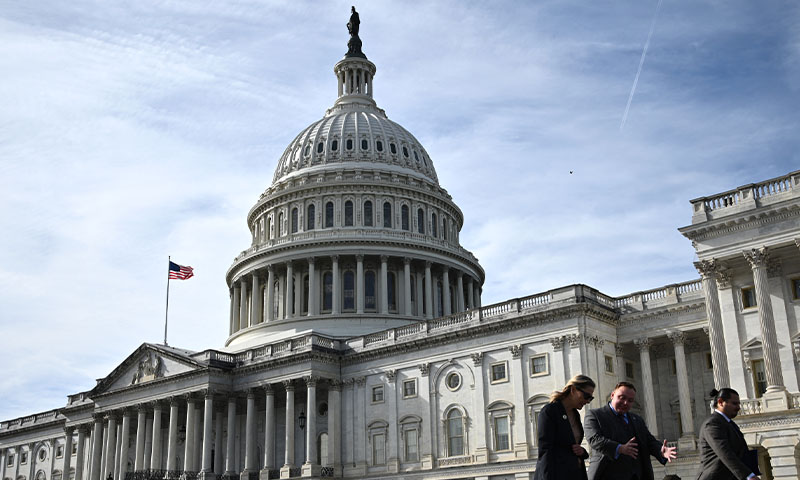- Web Desk
- 10 Hours ago
US govt shutdown ends after 43 days as Trump signs funding bill
-

- Web Desk
- Nov 13, 2025

After six weeks of disruption and uncertainty, the longest government shutdown in US history has come to an end. President Donald Trump signed a bill late Wednesday night to fund the government, restoring pay and services for millions of Americans.
The legislation passed the House of Representatives with a vote of 222 to 209, after six Democrats joined Republicans to push the measure through. Two Republicans opposed the bill. Shortly after the vote, Trump signed it in the Oval Office, blaming Democrats for the extended shutdown.
“This was an easy extension but they didn’t want to do it the easy way,” Trump said. “They wanted to do it the hard way.”
The funding bill restores last year’s spending levels through the end of January for most government agencies. It also ensures funding for key programs, including the Supplemental Nutrition Assistance Program, which provides food aid to roughly one in eight Americans. Federal workers who went without pay will receive back pay, and measures are in place to reverse layoffs imposed during the shutdown.
However, the deal does not address the underlying dispute over expiring Affordable Care Act subsidies, a key point for Democrats. Senate Majority Leader John Thune has agreed to schedule a vote in mid-December on legislation aimed at extending these subsidies. Some Democrats remain sceptical, calling the arrangement a tentative “handshake deal.”
Senator Tammy Baldwin of Wisconsin criticised the approach, saying it does not guarantee relief for those facing rising health care costs. Any future legislation would also require approval from the House, where Speaker Mike Johnson has not committed to a vote.
The shutdown caused widespread disruption. SNAP recipients went without benefits, federal employees missed paychecks, and air traffic operations were scaled back, affecting thousands of flights.
Democrats who supported ending the shutdown argued that prolonging the standoff would only increase hardship for ordinary Americans without changing the outcome. “There was no guarantee that waiting would get us a better result, but there was a guarantee that waiting would impose suffering on more everyday people,” Senator Tim Kaine of Virginia said.
While the immediate crisis has ended, both parties face ongoing challenges. Congress must pass additional spending bills in the coming months, and lawmakers will need to resolve the ACA subsidy issue to prevent future conflicts. For now, millions of Americans can expect their paychecks and public services to return to normal after more than a month of uncertainty.




